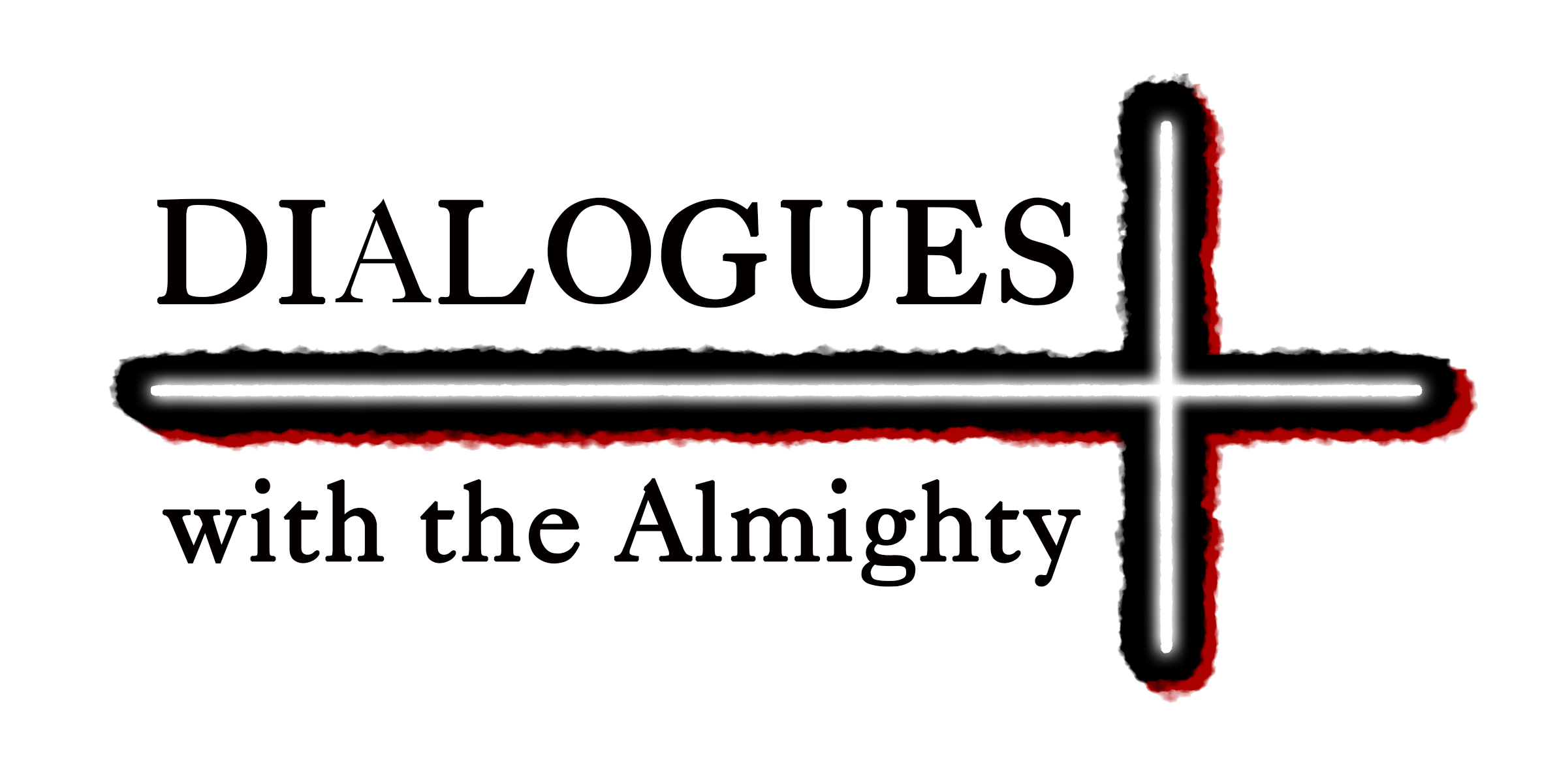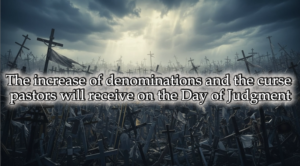.
What is truth to you?
Instead of briefly answering what truth is, I will share the story of what I have experienced and realized from the past up to now. During my school days, I thought that if I just went to school without much worry or deep thought, lived with the people around me, participated in activities together, built an ordinary family, grew old, and lived like water flowing naturally, I would naturally live an ordinary life. But then, I suddenly wondered: if I was born no different from others, lived an ordinary life, and died, what value would my life have?
However, there was no one around me who took such concerns seriously, and they treated it like a passing breeze. As time went on and I reached adulthood, this concern grew deeper and began to feel like a heavy burden in my heart. The future looked increasingly dark, uncertain, and invisible, so I started searching for things that could solve my problems in my own way. One day, while looking for sermons by pastors on YouTube that could comfort me, I kept noticing a particular video, and by following the protagonist of that video, I finally met the Teacher.
At our first meeting, he shared the message of the “Day of Judgment,” and unlike the sermons I had seen or heard before, he connected many Bible verses like flowing water. The words supported and explained each other, served as evidence, and worked together in harmony, making the scriptures, which I had previously found difficult to read or understand, not hard to grasp. They were simple yet sharp, incredibly clear, and precise. This was completely different from the sermons I had heard growing up in church, where they took a single verse and added various explanations and interpretations.
I had never seen or heard such vividly alive words before. When he paused and took a break, I found tears streaming down my face without realizing it. The words I had heard but never truly understood became clear to me, and the suffocating frustration and thirst in my heart, which I couldn’t resolve despite my efforts, melted away like snow with the Teacher’s words, turning into tears.
Although I had attended church, listened to sermons, and found temporary comfort or shed tears of emotion, my heart always returned to its original state, and the frustration and lack were never resolved. But the words I heard from the Teacher at our first meeting were so different. It was as if the words opened the tightly shut door of my heart, filled the empty void, quenched my dry throat, and lifted the burdens I was carrying. That precious and miraculous time was the most valuable and grateful moment I had ever experienced in my life.
Just through the words alone, I could feel deep emotion and grace in my bones, and for the first time, I realized that it wasn’t just simple words but carried some kind of power. Unlike the sermons and words I had heard before, which ended once I heard them, I confess that the Teacher’s words still remain and dwell somewhere in my heart. On the other hand, I wondered why I hadn’t known or heard these words before. Why wasn’t there anyone who spoke like the Teacher, and why couldn’t I even see people imitating him?
As time passed, I came to understand that God’s words are not learned or mastered through knowledge and study with the head. Only a prophet who receives God’s words and delivers them can proclaim and teach the true words of God and guide us on the right path. Thus, people in the world have seen but not truly seen the words, heard but not truly heard them, and even those who teach and preach the words fall into this category, which clearly shows the difference with the Teacher.
Later, a brother who was listening to the words with me shared that the Teacher spoke in a language that was hard to understand and then explained it in our language, saying that it was speaking in tongues and praise. As someone hearing this for the first time, I momentarily felt it was strange and thought, “What is this?” After finishing the message, he confidently said, “If you have any questions or anything you don’t understand, feel free to ask anytime.”
Having attended church since childhood and gone to various gatherings, I had never seen anyone who welcomed questions. I had only seen people reject questions, respond vaguely, or avoid them, and this was the first time someone proactively asked if I had questions. Upon reflection, I realized that if someone is a shepherd of God, someone who knows about God, they should be able to answer all kinds of questions about God, the words recorded in the Bible, people, and all things in this world created through God, without missing a single one.
So, I asked a few questions about things I had been curious about and related to the words. He answered every single one without hesitation, clearly and concisely, based on the scriptures, sharply and accurately, leaving me speechless. I couldn’t argue or criticize; I could only accept it. As I quietly observed him, I felt he was somehow different from ordinary people. What was different was that when most people receive a question, they think it over in their minds, and if they don’t know something precisely, they offer an opinion.
But the Teacher, faster than the time it takes to think, delivered a vast amount of information, making me feel he wasn’t an ordinary person. At that moment, whether he read my mind or noticed something, he looked at me and said, “My responses are different from those of ordinary people, aren’t they? I don’t speak through my head; wisdom rises from my heart and I speak. This is God’s wisdom.”
When I saw his eyes, which seemed to look not at my appearance but at my inner self, I felt a bit of fear. “He’s not an ordinary person.” A few days later, I made time to meet the Teacher again, and he first said to me, “Is the work you’re doing now manageable?” I replied, “My body is tired, but my heart is at peace.”
Then, just like before, he began speaking to me in a language I hadn’t heard before, and I just listened quietly. At that moment, a warm, cozy, indescribable energy began to flow into me, settling in my heart. Tears slowly welled up from deep within, blurring my vision, and flowed quietly without a word. The tears were greater and deeper than when I lost someone dear to me, but they weren’t filled with sadness or dark emotions. They flowed powerfully yet calmly like a river, warm, soft, and soaking in, solid like a rock, heavy, full of abundant richness and ease. This indescribable, unprecedented energy dug deep into my heart, embraced me, covered my heart’s wounds, gathered the scattered pieces of my heart, and formed a pillar to become a firm center.
This miraculous power was the praise spoken in the language of heaven, the tongues he first shared with me, like a patient being treated by a doctor. I’ve tried to express my experience in words as best as I could, but it’s understandable if you think it sounds “unrealistic, abstract, or nonsensical.” However, I am speaking only the truth without a single lie, and those who have experienced something similar through the Teacher will relate to my words. I wasn’t particularly interested in tongues and thought it was just repeating the same words or making strange animal-like sounds, something eerie and slightly creepy. But I learned through the Teacher that those were not the tongues described in the Bible, just strange noises, and that true tongues are something entirely different.
The teaching in church to believe and follow Christ, who died on the cross for sinners, was something I had heard often since childhood. I had some awareness that “I am a sinner,” but I didn’t clearly know what sins I had committed or how. I wondered if simply holding in my heart that I’m a sinner was the right attitude, so I looked into the Bible and asked pastors, but I never got satisfying answers.
However, the Teacher explained through Romans that people have seven emotions—jealousy, envy, strife, lust, deceit, pride, and hatred—and that sins are formed through habits created by these emotions, which are worthy of the death penalty. Upon hearing this, I instantly understood why I could only be a sinner before God and why every single person on earth is a sinner without exception.
It was so simple and clear, neither complicated nor difficult, and on one hand, it felt almost absurd. Compared to the church’s vague talk of “this sin, that sin,” inferring and guessing based on scriptures without clear standards or evidence, the Teacher’s words were like heaven and earth. Comparing them felt almost disrespectful to the Teacher. I realized I had been immersed in an absurd group for a long time, proudly thinking it was something to boast about, and my past self seemed so foolish and pathetic. I had never seen or heard of anyone who taught and lived by clearly distinguishing truth from falsehood based on the words, judging righteousness and goodness in this way. One day, one of the family members did something wrong, and the Teacher began scolding them sternly and loudly without hesitation. I thought to myself that it wasn’t a big mistake or a serious issue, but seeing him reprimand them like a judge addressing a great criminal, I found it strange.
The Teacher said, “It may seem like a small thing now, but this is a wrong habit this person has, and everyone here has it. I’m rebuking to correct that habit. This is what it means to destroy the works of the devil, as stated. The devil’s works are evil habits, and through rebuke and discipline, I am a messenger of God guiding you to be transformed and changed.” Then, as if nothing had happened, he smiled and spoke calmly. Seeing someone who had just been passionately raising their voice suddenly become calm was strange. From my experience, when a person gets excited, their emotions and agitation don’t subside immediately and take time to calm down, so such behavior is impossible for an ordinary person. As I witnessed this behavior multiple times over time, I could feel that he wasn’t acting out of malice or hatred like ordinary people. I came to truly understand that it was rebuke and discipline stemming from a father’s heart, desiring his child to grow upright.
However, while I could accept and admire his sharp and precise rebuke when it was directed at someone else’s sins and wrongs, when it was directed at me, all those feelings vanished, and resentment and dissatisfaction built up, making it hard to accept easily. Even though I knew the rebuke was for my sake, unlike the words that gave strength, grace, and emotion, it was uncomfortable to hear, made me want to avoid it, and was hard to accept. The Bible says that desire gives birth to sin, and sin gives birth to death. Before reaching death, he precisely points out the sins we each have, sharply bringing them to light.
It’s like discovering a cancer cell that has been secretly growing inside the body, cutting open the skin, digging deep to find and remove it. It’s painful, unwanted, and human nature wants to avoid it. Truly, humans are deceitful. My reactions were polar opposites when he rebuked others versus when he rebuked me. Rebuke is life that saves us from death, and the words testify to this.
If you want to stand upright before God, you must not avoid rebuke but accept it and strive to correct your shortcomings. However, I learned that effort, willpower, determination, and conviction alone cannot uncover or correct a person’s evil habits, nature, and problems. By learning to rely on God instead of myself, learning to pray, I feel myself gradually changing and being transformed. I couldn’t write down everything I’ve felt and learned, but the above content is written based on only a part of what I am currently experiencing.
I wanted to live a righteous life but didn’t know what a righteous life was. I wanted to walk the right path but didn’t even know which path was right. Through the Teacher, I found a small hope. I resolved to dedicate my entire life to following the Teacher to change and transform through this process multiple times, with no room for doubt, and that heart remains unchanged even now. The small hope I found in the Teacher gave me a reason to live and a small light in the darkness showing me the direction to go.
Though I’ve spent considerable time with him, I am still far from being an example and salt and light as described in the words, weak and lacking in many ways. God does not look at outward things like race, background, education, or wealth. My presence here is proof of that. So, if there is anyone who seeks to know God rightly and stand upright by following the words of truth, I hope you will find us and join us.
.
.
.



